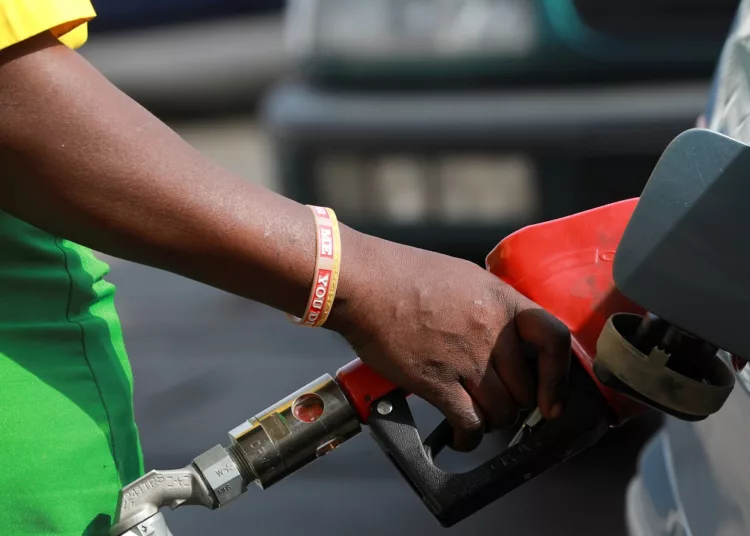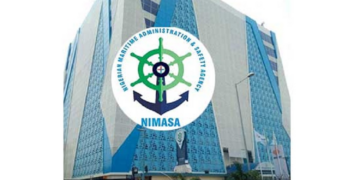Petroleum scarcity may be brewing in the South Western region of the country as the Independent Petroleum Marketers Association of Nigeria (IPMAN), South-West Zone is set to halt petroleum distribution over toll fees in the Lekki-Eve axis.
To this end, residents and businesses around the Lekki-Epe axis may experience energy supply disruption following a directive by IPMAN, South-West Zone, asking its transporters to withdraw from the Lekki-Epe corridor starting Monday, June 16, 2025.
It is also feared that the action may spiral into scarcity in the South West part of the country. The Lekki-Epe corridor hosts critical infrastructure such as the Lekki Deep Sea Port, Dangote Refinery, and several industrial estates, factors that have significantly increased truck traffic and worsened congestion in the area.
Petroleum marketers and truck owners are rejecting the Lagos State government’s enforcement of a N12,500 e-call-up levy on trucks operating along the Lekki-Epe corridor.
The IPMAN and the National Association of Road Transport Owners (NARTO), on Monday. staged a peaceful demonstration, withdrawing haulage and fuel trucks from the corridor in rejection of what they describe as an ‘exploitative, ill-timed, and burdensome’ policy.
The protest, which effectively halted tanker movement from the region, raises serious concerns about fuel distribution in Lagos and other parts of the country, as the Lekki axis plays a strategic role in supplying petroleum products, particularly, with the presence of the massive Dangote Refinery and associated facilities.
According to the protesters, the e-call-up levy—part of a public-private partnership (PPP) initiative—is being enforced without adequate infrastructure or stakeholder input. They insist the policy does not address any actual traffic congestion, which government officials have cited as the primary reason for its implementation.
The immediate past chairman of IPMAN in the South-West, Dele Tajudeen said, all efforts to reach a compromise with the government were rebuffed, saying, ‘We have had several meetings, but the government has remained adamant.’
“There is no gridlock along the corridor. So why this levy? This policy is not about solving a traffic problem—it’s about enriching private interests under the pretense of public benefit,” he said.
He further argued that the funds from the levy are not being remitted directly to the state government but rather to private partners, raising questions about transparency.
“We already paid N7,000 at the toll gate. Now an additional N12,500 is being demanded.
That’s N19,500 before we even load fuel. And this money, we hear, is going to a private account—not the government. This is not sustainable,” he added.
Truck owners warned that the cost burden will inevitably be transferred to consumers, worsening economic hardship. With operational costs already ballooning due to the rising price of diesel, vehicle maintenance, and spare parts, the new levy could be the final straw for many businesses in the fuel distribution chain.
Chairman of NARTO at the Lekki Free Trade Zone, Gbenga Olubasusi said: “Trailer tyres now cost over N700,000, and trucks that used to cost N4.5 million now go for over N40 million. We are already managing so much inflation. This new levy will drive up fuel prices and everything else.”
Olubasusi also condemned the absence of basic facilities for truckers in the area, adding that, “There is no government trailer park here. We use private parks and pay between N3,000 and N5,000 daily. Now they want to charge us an additional N12,500 with nothing to show in return?”
Zonal secretary of NARTO Southwest, Comrade Wale Oladeinde, explained that the action is not a strike but a strategic withdrawal of services, adding that, “This is not industrial action. We’re simply exercising our right to stop work under unfair conditions. The trucks are privately owned, and no one can force us to operate under such policies. If Lagos insists on this levy, fuel supply will suffer, and so will the economy.”
Lagos State NARTO chairman, Kayode Odunowo said, the industry cannot absorb the additional costs, saying, “We are totally against this charge. We cooperated in Apapa years ago with similar promises from the government, but they failed to deliver. This time, we won’t play along.”
He warned that any disruption in truck movement would have a cascading effect on the national economy.
Vice chairman of IPMAN, Mosimi Depot, Olaniyan Yekini questioned the rationale behind levies without infrastructure, noting that, “Other states like Oyo and Ogun have proper trailer parks. Lagos provides parks for buses but not trucks. Yet, they want us to pay more. Are we not part of Nigeria?”
Despite the hard stance, both IPMAN and NARTO said they remain open to dialogue. They urged the Lagos State government to suspend the levy and invite stakeholders for genuine consultations aimed at building practical, inclusive solutions that address transport challenges without punishing operators.
‘We are not against regulation. But it has to be fair and transparent. You don’t tax a sector without providing the enabling environment,’said Oladeinde.











